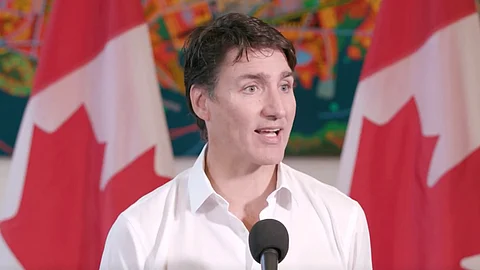

Analysts have warned that the Liberals could prorogue parliament in January to avoid a confidence vote while the party conducts a leadership election.
NDP leader Jagmeet Singh, who has helped keep Prime Minister Justin Trudeau's minority government in power, recently said he will vote to bring down the government.
Proroguing parliament could hobble Canada when it comes to important issues, like American president-elect Donald Trump taking office in January and his threat to impose a 25% tariff on Canadian goods unless issues at the border are resolved. Analysts say the tariff would devastate Canada's already weak economy.
Canada is also suffering through an affordability and homelessness crisis, as well as rampant crime and issues with migrants.
Historically, prorogation was used by Canadian prime ministers to reset their agenda, avoid legislative deadlocks, or, in some cases, to delay confidence votes.
Given Trudeau's current political issues, including falling popularity and internal party dissent, prorogation could offer a pause to the ongoing chaos.
Prorogation has been criticized as a way to avoid criticism or accountability. Previous cases, like those under Prime Ministers Harper and Trudeau himself in 2020, have created controversy.
With Trudeau's leadership already under fire, proroguing could intensify criticism.
Parliament must meet at least once every 12 months — as stipulated by the Constitution Act of 1867, which says there must be a session of parliament at least once each year.
